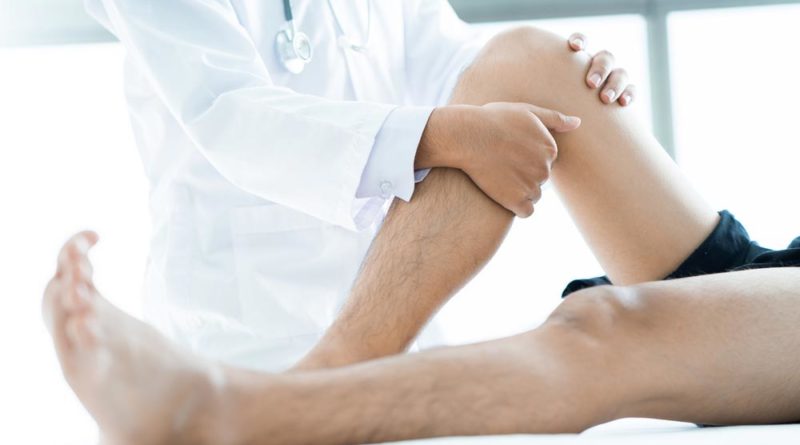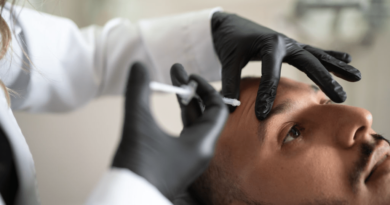How Do You Get To Know That You’ve A Knee Injury?
What constitutes as a knee injury?
Your knees have been designed by nature to perform two quite simple processes: bending and extending. These two apparently simple tasks involve the working of a complex set of structures in order to be performed accurately and painlessly. The knees are made up of bone, cartilage, ligament, and fluid-filled sacs that are referred to as bursas. Knee injuries occur with the damage to or wearing off of any one or more of these parts that work in harmony in order to allow your knee to function properly, thus assisting your body to move around and perform tasks related to your daily life.
Knee injuries are quite common and can occur in people of all or any age groups due to a number of reasons. Although knee injuries can be avoided, it is in your best interest to be aware of the different kinds of knee injuries and the signs and symptoms related to them, along with consultation with an expert if you ever face such a situation in your life.
Also, read about top ten exercises to stay fit.
Various kinds of knee injuries
Apart from fractures, and dislocations, a number of other knee injuries have been identified by orthopedics over the years, therefore highlighting the complexity associated with this rather simple appearing part of your body.
Sprains
Sprains are the type of knee injury that occur when the ligament that is responsible for holding your knee together gets stretched or teared as a result of external force.
Strains
Strains are the injuries occurring to the muscles and tendons that surround your knee. These injuries are caused by acute hyperflexion or hyperextension, and can also result due to overuse.
Bursitis
Bursitis happens due to the inflammation of the bursas which results from the bursas being exposed to direct blows as well as chronic use or abuse.
Osteoarthritis
Osteoarthritis is commonly regarded as the most common disease that affects the knees. In this knee disease, the cartilage present in the knee wears away with time.
ACL
Quite common among athletes, Anterior Cruciate Ligament (ACL) injuries are said to occur when the ACL is damaged as a result of sudden change of direction or an abrupt twist.
PCL
Posterior Cruciate Ligament (PCL) injuries take place when the knee faces a blow from the front side while it is bent.
Meniscal tears
Meniscal tears occur with the damage to or the tearing of the meniscus. Although this injury is commonly resulted due to extreme sports activities or sudden twisting, meniscal tears may also happen due to arthritis and old age.
How to identify a knee injury?
Certain techniques have been suggested by the American Academy of Orthopedic Surgeons (AAOS) in order to identify a knee injury. These include:
-Severe pain in the knee region
-Inability to move the knee
-Limping
-Hearing a popping sound from the knee region
-Swelling of the knee region
Likewise, certain other signs and symptoms suggested by Mayo Clinic that may be associated with knee injury are as follows:
-Stiffness of the knee region
-Knee region turning red
-Knee region feels warm upon touch
-Inability to straighten the knee to full extent
Likewise, bruises around the knee region, the sense of instability, tenderness, and having issues with tolerating weight are also some other symptoms that have been associated with knee injuries. An injured knee is usually diagnosed with the help of a thorough physical examination, X-Rays, Magnetic Resonance Imaging (MRI), and Computed Tomography (CT) Scans.
Although home remedies have been extensively used for millennia in order to deal with knee injuries, a visit to the doctor is generally recommended if the pain in the knee region does not go away after days, or if you see a clear deformity in your leg or knee region, or also if you are unable to extend or bend your knee, thus reducing your knee’s range of motions.
Based on the severity of your knee injury and other factors, i.e. age, health, gender, other diseases, the orthopedic will either opt for a non-surgical treatment of the injury or a surgical treatment.
Person to consult in the event of knee injury
Although you can avoid knee injuries through care, proper exercise, and a good, healthy lifestyle, you may suffer from a knee injury due to factors you might not have taken into consideration. In the event of such a happening, it is best to head to an experienced orthopedic who is fully able to treat your knee injury in the best possible manner. It is recommend that you head to Knee Injury doctor, Dr. M. A. Wajid in Lahore.
With an experience of more than twenty years as a professional orthopedic surgeon, Dr. Wajid’s services and achievements as a practitioner of orthopedics in Pakistan are commendable. After receiving his FRCS in Trauma and Orthopedics from the UK, Dr. Wajid did specialization from Germany, and Belgium. He supervises AO Trauma courses in Pakistan after the country was inducted in the AO Foundation Switzerland as a result of his efforts.
Dr. Wajid’s areas of interest include Key Hole (Arthroscopic) Surgery, Joint Replacement Surgery, Acetabular Fracture Surgery, as well as dealing with routine trauma and sports injuries. He currently serves as visiting faculty at the Aga Khan University, Karachi, after having served as Head of Orthopedic Surgery of the very institution. Dr. Wajid also offers his services as professor of Orthopedic Surgery at the Shalamar Medical and Dental College, Lahore. He currently offers his professional services as an orthopedic surgeon at the National Hospital, DHA Lahore.
His patients are in the several thousand as he has been serving in his field with great passion and loyalty over the past two decades. Dr. Wajid is well known for treating each and every single one of his patients with immense dignity and respect, as should be the attitude of any capable physician. His patients recall him as an honest individual and a true gentleman.
Be sure to take a glance over his sparkling profile online, accompanied with the hundreds of positive reviews from his patients, if you feel the need to book an appointment with him concerning any issues with your knee(s).




